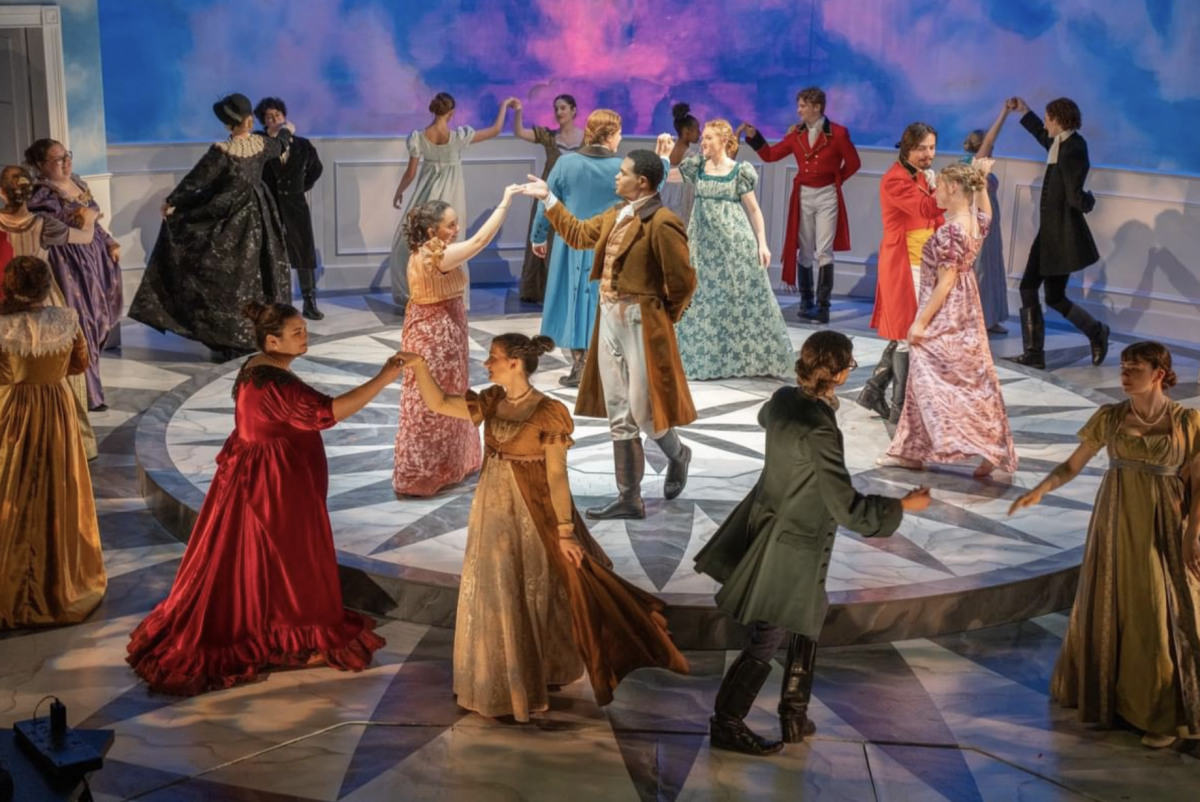We’ve all had that feeling of standing at the crossroads of life, not sure where to go next. Usually this sensation of confusion, helplessness and maybe even hope is driven by a drastic change in our lives.
For Roger Greenberg (Ben Stiller, “Night at the Museum: Battle of the Smithsonian”), the title protagonist in writer/director Noah Baumbach’s latest independent film, a failed career as a musician-turned-carpenter and a subsequent nervous breakdown that leads to a short stay at a mental institution brings about this feeling. In a recent conference call with Baumbach (“Margot at the Wedding,” “The Squid and the Whale”), Stiller and James Murphy of LCD Soundsystem fame, who wrote his first score for the film, discussed the making of the universally relatable “Greenberg.”
Known more for his characters in high profile comedies like “Tropic Thunder” and “Meet the Parents,” Stiller would appear at first glance to be an unusual casting for the more dramatic role of Greenberg. Baumbach, however, didn’t look at hiring Stiller so much as a different role as it was “Ben was the best person to play this.”
“I’ve always wanted someone who had a sense of humor to play this part,” Baumbach said. “There’s a lot of humor in it, although it’s not played for laughs. The more authentically portrayed the funnier it was going to be. And I’ve liked Ben since ‘The House of Blue Leaves’ (1987), the John Guare play, which I think was his first professional role.”
“It took you long enough to give me a call,” Stiller joked.
“You were busy for a while,” Baumbach quipped back.
It may have taken nearly 23 years, but Baumbach finally found the right role at the right time for Stiller, and the 44-year-old veteran actor couldn’t be happier about what he views as a once-in-a-lifetime opportunity.
“For me, I think there are four or five filmmakers that if you get a call from them as an actor you just basically say yes no matter what it is, and Noah is definitely one of those guys for me,” Stiller said. “Then it was just the chance to really work on something that was really just about the character and have the chance to work on something that was that deep in terms of the specificity of the writing was really exciting for me, so I just felt very fortunate to have that opportunity.”
With no job and no interest in finding one, Greenberg agrees to move from New York to Los Angeles to housesit for his more successful younger brother. In addition to trying to reconnect with his old friend and former bandmate and develop a relationship with his brother’s assistant, Greenberg spends his free time writing passive-aggressive letters to mega corporations like Starbucks, trying to convince businesses to conform to his irascible ideals. Although not originally written as voiceover, having Stiller read these letters “became almost a kind of score element in the movie,” according to Baumbach.
“There’s a lot of frustration and anger, and a lot of creative energy goes into [writing the letters],” Baumbach said. “But I found it something very funny, but also something kind of moving that someone would get so invested in letting these faceless corporations know how he felt about something after the fact. At the same time, there’s something totally feudal about it because it’s kind of spitting these things out into the ether.”
While the voiceover of Greenberg reading his letters serves as a pseudo-score of sorts, one of the film’s highlights is the actual score written by Murphy. A drastic turn from the mix of dance music and punk that Murphy’s LCD Soundsystem is known for, the film’s soundtrack serves as “a backdrop for what’s happening and lets the emotions be done by the directing and the shooting and the acting,” Murphy said.
“The goal for me was to make music that works, that we liked, that seemed true to the characters and true to the movie and to make Noah happy,” Murphy said. “On a small level it always just seemed to go with our guts. It got remarkably more comfortable the more we did.”
If anything, Murphy certainly found a fan and friend in Baumbach.
“I loved everything James did that I kept trying to find places for it. Which was good because I used score more in this movie than I have in previous movies, partly inspired by just trying to find places for music that I really liked,” Baumbach said.
In the end, the intimate atmosphere on set among the cast and crew of this low budget, independent production resulted in a final product that audiences will be able to enjoy and relate to.
“I think everybody who was working on the movie was really dedicated to it and wanted to do the best they could because they respected the script so much and Noah,” Stiller said. “There’s a lot of camaraderie, there’s a feeling of we’re all connected to do the best we could all the way down to the camera people and crew.”
“Greenberg” opens in limited release on Friday, March 26.







